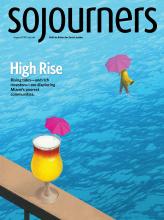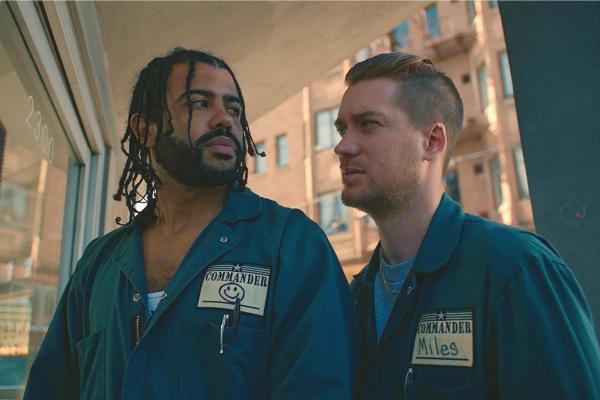LIFELONG FRIENDSHIP is paradoxical. The person who knows you best can also cause the most pain. Another layer of complexity emerges when one party wants to change their life while the other remains fixed on how things used to be. Spend an evening with high school buddies who haven’t seen each other for 20 years, and you’ll see that unresolved parts of our character tend to appear when old friendships spark off each other.
The utterly thrilling Blindspotting, a likely candidate for both the best and most important film of the year, dramatizes friendship as central to being human, with the unresolved dimensions of wider social relationships the main challenge we face to be happy in this life and to have a life at all. It’s a brilliant examination of one of the smallest facts of life—boy meets boy—and one of the largest: Since your people persecuted my people, how can we ever become the same people?
The plot is simple: A guy has three days before his probation ends, so he must avoid even the hint of trouble. It doesn’t work out, of course.
Read the Full Article

